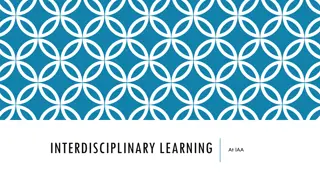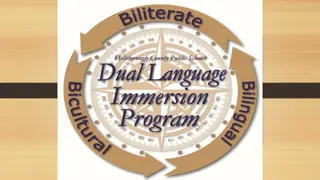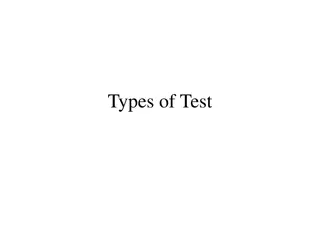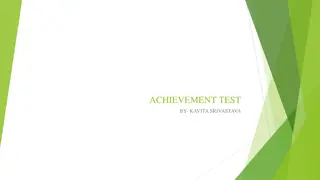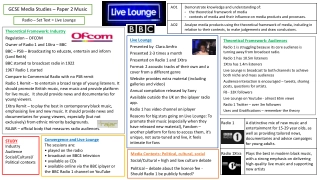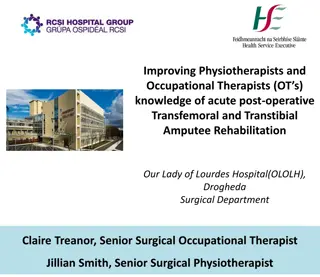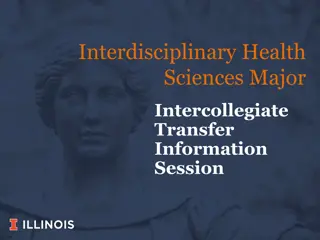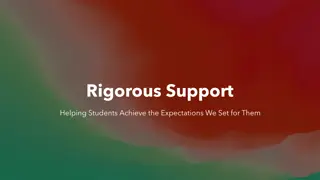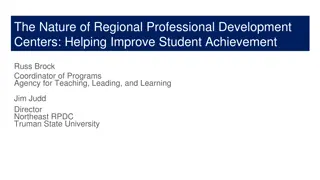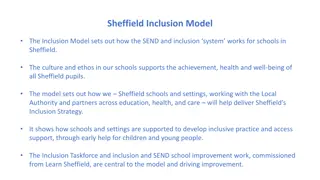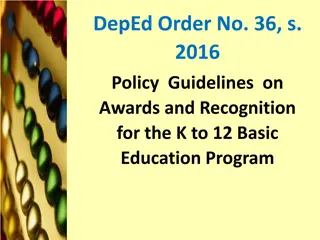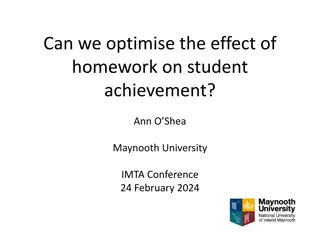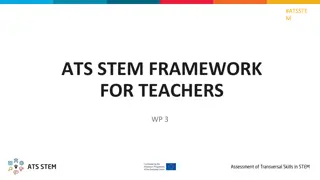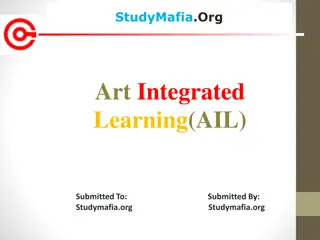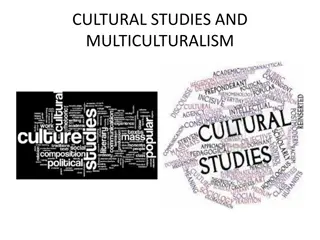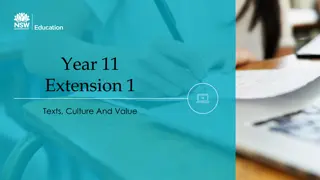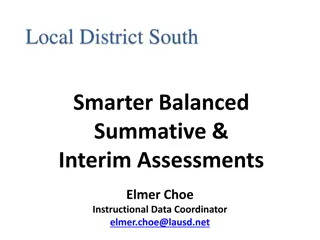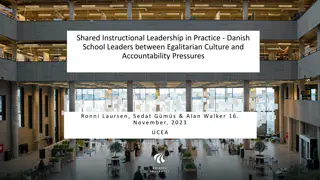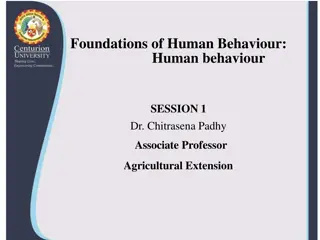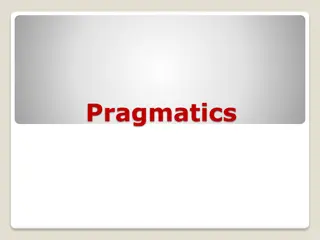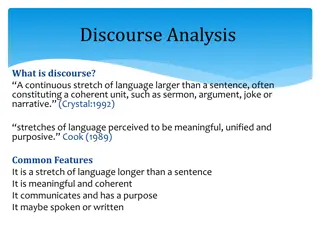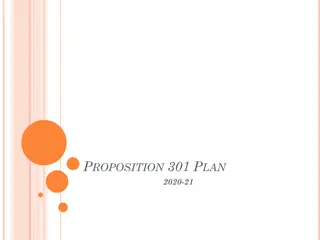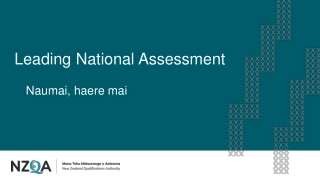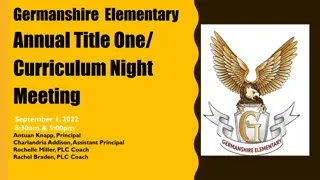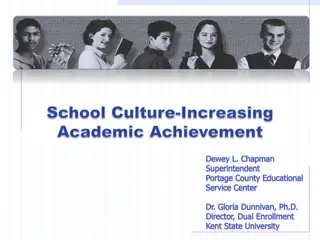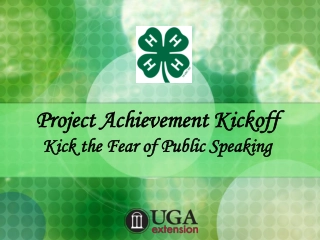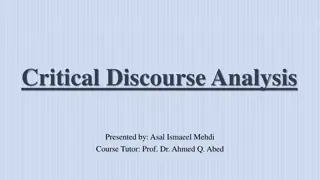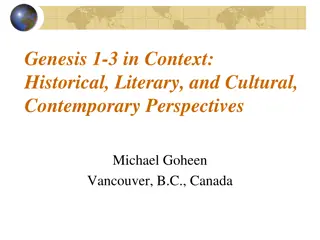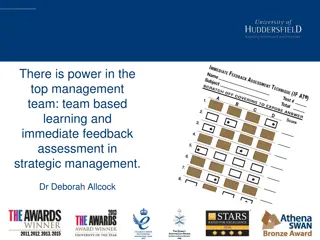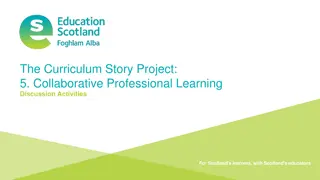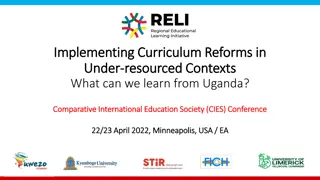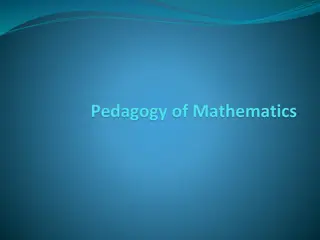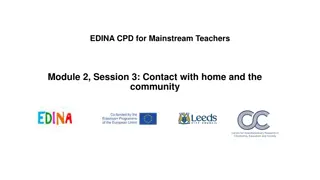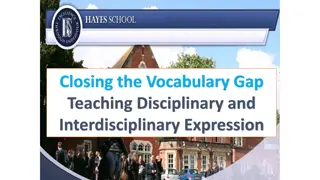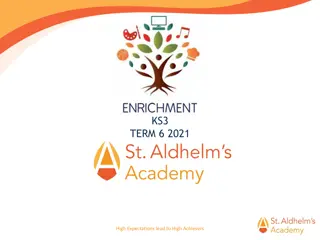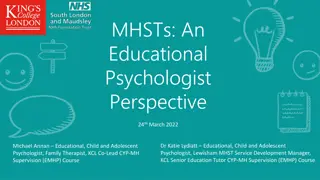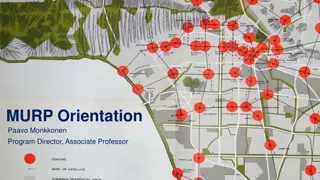Enhancing Learning Through Four Contexts: Opportunities for Achievement and Interdisciplinary Learning
Explore the importance of interdisciplinary learning and opportunities for personal achievement across different contexts within the curriculum. Discover how a positive school ethos, varied curriculum areas, and active student involvement contribute to a holistic learning experience.
Download Presentation

Please find below an Image/Link to download the presentation.
The content on the website is provided AS IS for your information and personal use only. It may not be sold, licensed, or shared on other websites without obtaining consent from the author. Download presentation by click this link. If you encounter any issues during the download, it is possible that the publisher has removed the file from their server.
E N D
Presentation Transcript
Learning across the four contexts at [insert here] Opportunities for personal achievement Interdisciplinary Learning Interdisciplinary learning The curriculum should include space/opportunities that enable children and young people to make connections between different areas of learning. Interdisciplinary learning should be stimulating, relevant and challenging. Revisiting a concept or skill from different perspectives deepens understanding and can make the curriculum more coherent and meaningful for learners. It can take advantage of opportunities to work with partners who are able to offer and support enriched learning experiences and opportunities for young people s wider involvement in society. Opportunities for personal achievement Personal achievement provides children and young people with a sense of satisfaction and helps to build motivation, resilience and confidence. The experiences and outcomes include opportunities for a range of achievements in the learning setting and beyond. All establishments need to plan to offer opportunities for achievement and to provide the support and encouragement which will enable children and young people to step forward to undertake activities which they find challenging. This is one of the key areas where schools need to work closely with a wide range of partners to help young people access information and opportunities and make their voices heard. Effective interdisciplinary learning: can take the form of individual one-off projects or longer courses of study is planned around clear purposes is based upon experiences and outcomes drawn from different curriculum areas or subjects within them ensures progression in skills and in knowledge and understanding can provide opportunities for mixed stage learning which is interest based. The Curriculum the totality of all that is planned for children and young people throughout their education Ethos and life of school as a community The starting point for learning is a positive ethos and climate of respect and trust based upon shared values across the school community. All practitioners should contribute through open, positive, supportive relationships where children and young people will feel that they are listened to; promoting a climate in which children and young people feel safe and secure; modelling behaviour which promotes effective learning and wellbeing within the school community; and by being sensitive and responsive to each young person s wellbeing. Curriculum areas and subjects The curriculum areas are the organisers for setting out the experiences and outcomes and contribute to developing the four capacities. There are eight curriculum areas. Curriculum areas are not structures for timetabling: establishments and partnerships have the freedom to think creatively about how they can organise and plan for deep, sustained learning which meet the needs of their children and young people. Subjects are drawn from the curriculum areas and provide a familiar structure for organising knowledge and skills. As young people move through the broad general education and into the senior phase they will experience increasing specialisation and greater depth, with a wide variety of subjects increasingly being the principal means of structuring learning and delivering outcomes. Children and young people should be encouraged to contribute to the life and work of the school and to exercise their responsibilities as members of a community. This includes opportunities to participate responsibly in decision-making, to contribute as leaders and role models, offer support and service to others and play an active part in putting the values of the school community into practice. Curriculum areas and subjects Ethos and life of the school as a community
Four Contexts blank template
Learning across the four contexts at [insert here] Opportunities for personal achievement Interdisciplinary Learning The Curriculum the totality of all that is planned for children and young people throughout their education Curriculum areas and subjects Ethos and life of the school as a community
Learning across the four contexts at Laxdale Primary School Opportunities for personal achievement Interdisciplinary Learning Learning from Grandparents about how transport has changed over the generations. Helping Shen/Grandpa in the croft by looking after a new born lamb. Learning how to plant potatoes with help from big brother! Creating a garden plot as part of Hi5 Accredited Youth Award The Curriculum the totality of all that is planned for children and young people throughout their education Harry, along with his dad, chose 10 tools from the garage to help him learn the "Stories of 10". Saying thanks to the local NHS and key workers. Science experiment to create fireworks in a glass - oil is less dense than water. 5k Run for Heroes fundraiser Curriculum areas and subjects Ethos and life of the school as a community


